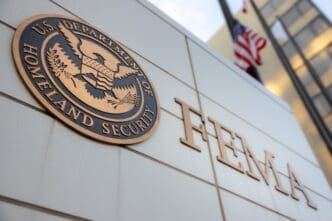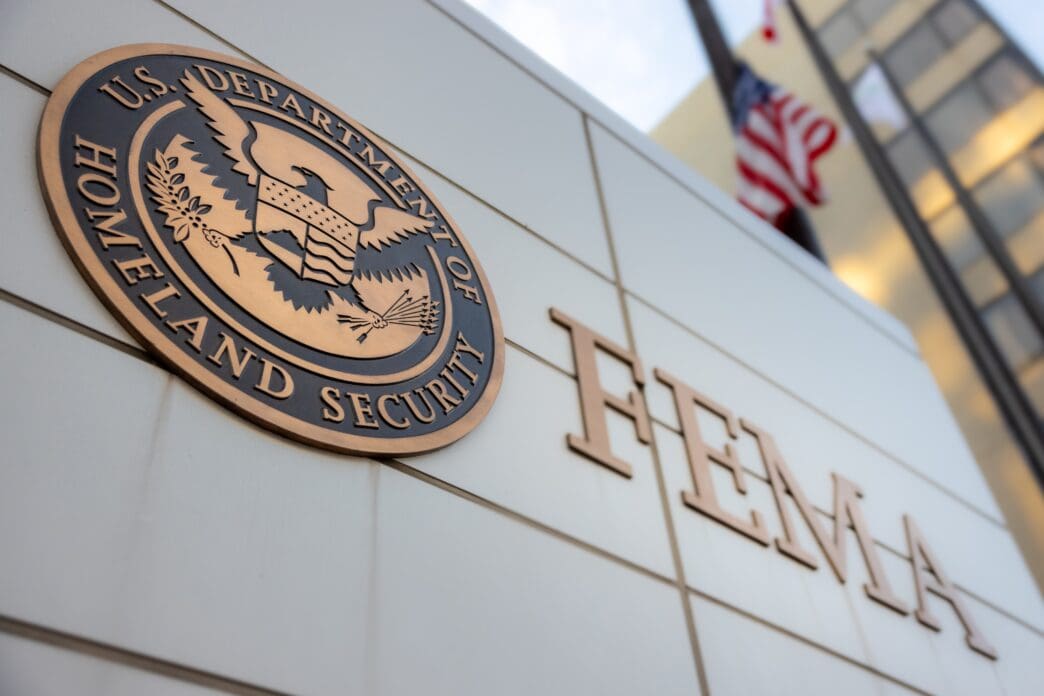Executive Summary
The Story So Far
Why This Matters
Who Thinks What?
The Trump administration’s Department of Homeland Security (DHS) has concluded that the Federal Emergency Management Agency (FEMA) intentionally delayed disaster aid to Americans based on political affiliation during the Biden administration. This finding, announced by DHS Secretary Kristi Noem last week, directly contradicts an earlier multi-agency investigation that found no systemic political bias within FEMA, prompting criticism from former agency officials who accuse DHS of fabricating a narrative to justify the agency’s proposed reforms or abolition.
Contradictory Investigations
An initial investigation, which began under then-President Joe Biden and continued into the Trump administration, ultimately cleared FEMA of widespread political bias. That probe found no evidence of a systemic effort to deny aid based on politics, though it did identify one supervisor’s actions as illegal and improper.
However, DHS leadership, including Secretary Noem, was reportedly not satisfied with these findings. Within weeks of the first investigation’s conclusion, DHS ordered a new probe that came to a significantly different conclusion.
Last week, Noem announced that the DHS investigation found that “for years, FEMA employees under the Biden Administration intentionally delayed much-needed aid to Americans suffering from natural disasters on purely political grounds.” She characterized these actions as “textbook political discrimination” against Trump supporters and stated she would refer the issue to the Justice Department for potential prosecution.
Details of the DHS Probe
The DHS investigation focused on whether FEMA workers recorded protected private information about survivors’ political views while conducting door-to-door visits in disaster zones. The report identified approximately 100 field reports—a small fraction of tens of thousands of cases during the Biden administration—where FEMA workers mentioned campaign signs or made notes related to “political beliefs.”
While investigators flagged a few instances where notes mentioned “Trump” or “Biden,” the report indicates that in most cases, workers were documenting gun signage, which was also categorized as political. Sources suggest these gun notations were often made for safety reasons, and the report does not explicitly show that disaster survivors were denied aid due to these notations.
Despite these findings, former FEMA officials have accused DHS and Secretary Noem of stoking rumors and misinformation. They argue that the evidence does not support claims of a systemic problem, suggesting that DHS is leveraging these claims to justify a broader effort to dismantle FEMA.
Background: The 2024 Hurricane Season
The political dispute surrounding FEMA intensified in September 2024 after Hurricane Helene devastated western North Carolina. Then-candidate Trump publicly accused FEMA and the Biden administration of ignoring Republican areas and diverting disaster aid to undocumented immigrants.
These claims led to increased threats and hostility towards FEMA workers in disaster zones, prompting some teams to be withdrawn for safety. Weeks later, after Hurricane Milton hit Florida, FEMA teams reported widespread harassment fueled by Trump’s rhetoric.
In October 2024, FEMA field supervisor Marn’i Washington issued a directive to her staff in Florida to “Avoid homes advertising Trump.” Washington initially claimed her supervisors had given these orders due to concerns about abuse from Trump supporters, but an subsequent investigation determined this was her own interpretation, not an official directive. FEMA leadership under the Biden administration fired Washington and denounced her actions.
Florida’s attorney general later filed a lawsuit alleging civil rights violations against FEMA and then-administrator Deanne Criswell, which was eventually settled with no damages paid.
Initial Investigation Cleared FEMA
Over four months, FEMA’s Office of Professional Responsibility, the Department of Homeland Security’s Office of the Inspector General, and the Office of Special Counsel jointly investigated the incident and broader agency culture. This probe continued into the early months of the Trump administration.
In March, Trump’s acting FEMA administrator, Cameron Hamilton, informed lawmakers that three additional staffers had been fired in connection with the Washington incident, primarily for poor supervision or misleading investigators. However, Hamilton’s letter to Congress explicitly stated that investigators found “no evidence that this was a systemic problem, nor that it was directed by agency or field leadership.”
Hamilton later reiterated that tens of thousands of records were reviewed, and “no reasonable evidence” was found to authenticate claims of aid denial based on political bias from FEMA leadership. The probe formally cleared Criswell and FEMA in April, leading agency leaders to believe the matter was closed.
DHS’s Second Look at Alleged Wrongdoing
Weeks after the initial internal probe concluded, Roman Jankowski, the newly appointed head of DHS’s Privacy Office, launched a separate review. Jankowski, an alum of the Heritage Foundation, reportedly took a different approach, focusing on whether FEMA aid workers violated privacy laws by recording protected information, such as political beliefs, and if that information could have been used to withhold disaster aid.
His review extended beyond the 2024 hurricane season, examining data from the entirety of the Biden administration’s four years. A senior FEMA official who spoke with Jankowski noted that he “definitely made it clear that he suspected FEMA was involved in broad-scale wrongdoing” and seemed to have already concluded that “FEMA as an agency needed to be severely punished.”
The 22-page report released by Jankowski’s team last week concluded that FEMA canvassers repeatedly violated—or may have violated—privacy laws by collecting information on survivors’ political beliefs. It also noted that in a handful of cases, certain homes were bypassed based on the details recorded.
However, more than a dozen current and former FEMA officials argue that the evidence does not support claims of a systemic problem. They point out that canvassers referenced Trump only 15 times in their reports across four years, and it remains unclear whether workers never returned to those specific homes. FEMA officials also noted that freeform notes are often used for safety alerts, especially after the heightened threats following Hurricane Helene.
DHS raised concerns about specific entries from canvassers, such as notes mentioning “Survivor very anti govt anti Biden” or explicit political flags, suggesting these led teams not to return to the homes. Secretary Noem, however, has been more definitive, stating the probe found “FEMA employees systematically refused to visit the houses of disaster survivors that displayed signs and flags they disagreed with, including those with campaign signs supporting President Trump.” Trump’s FEMA ended door-to-door canvassing earlier this year, citing safety concerns and the prevalence of online and call center applications.
The Future of FEMA
As Secretary Noem continues to portray FEMA as partisan and inept, a new FEMA Review Council is expected to present recommendations for reforms in the coming weeks. President Trump has also vowed to begin phasing out FEMA after hurricane season, though specific details have not been released.
Noem has positioned herself as a key figure in fulfilling Trump’s promise to dismantle FEMA, stating her goal is to eliminate FEMA “as it exists today” and “clean house.” Current and former FEMA officials express concern that these attacks are eroding public trust in an agency vital for disaster response.
Critics also highlight what they perceive as irony in these accusations, noting that Trump has faced criticism for allegedly politicizing disaster aid. This includes instances where he reportedly posted on Truth Social about sending millions to states that supported him, and approved $2.5 million for Missouri despite FEMA recommending denial. Conversely, Democratic-led states like Maryland and Washington have reportedly been denied aid even when damage exceeded FEMA’s threshold and approval was recommended.
Since the start of the administration, DHS has consolidated power at FEMA, replacing career experts with political appointees, subjecting staff to polygraph tests, and publicly firing employees. More than a quarter of FEMA’s full-time workforce, including dozens of senior leaders, has reportedly left through layoffs and buyouts.








